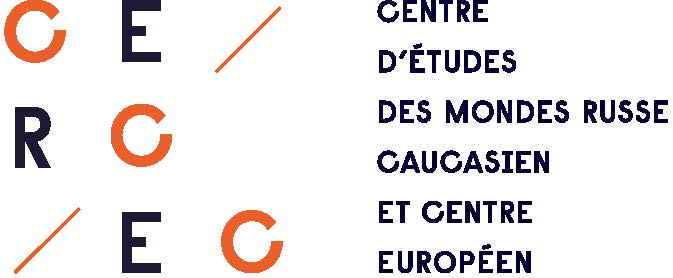Événement en présentiel
Anna Triandafyllidou, Canada Excellence Research Chair in Migration and Integration, Toronto Metropolitan University
Responsable scientifique de l'événement : Hélène Thiollet, Sciences Po-CERI
Event in Anglais
Événement en présentiel
a Repertoire of Muffled Voices
Lieu : Salle G009, rez-de-chaussée, 28 rue des Saints-Pères
Beyond official propaganda and under the threat of random censorship, the Russian grass-roots society is divided into a variety of politically meaningful voices of virtual communities, small marginal groups, and individuals. They position themselves in relation to the current war and the political regime. How can we study these groups? How adequate is the picture we get, given the censorship, self-censorship, distorting scripts of Internet bots, etc.? In spite of these complications, we will try to draw profiles of a few groupings or publics, thus attempting to zoom and partly reveal an uncertain picture of sentiments and attitudes.
Sergei Shtyrkov will talk about the group called “Citizens of the USSR”, a politicized New Age movement representing a mix of conspiracy theories and “legalist millennialism,” seeing itself in opposition to the current regime (and its war in Ukraine), and proposing a spiritual alternative to the entire system of modern society and knowledge. Alexandra Arkhipova will present an interview-based analysis of the voices of those people who face a hard choice between “I can’t keep quiet and I’m afraid to act,” thus showing how Russians are engaging in indirect, silent protest against the war and how the authorities are responding. Alexander Agadjanian will try to present an overall mapping of various types of attitudes revealed either through surveys or through a variety of more or less loosely-structured, semi-muffled voices.
Participants:
Alexandra Arkhipova, Laboratoire d'Anthropologie Sociale, EHESS;
Sergei Shtyrkov, Groupe Société, religion, laicité, EPHE;
Alexander Agadjanian, Chercheur invité, CERI
Moderator:
Kathy Rousselet, Sciences Po-CERI
Language of the event will be English
L'événement est organisé par le groupe "Mondes post-soviétiques" du CERI, en partenariat avec le séminaire "Autoritarisme, guerre et mobilisations dans l’espace postsoviétique" (CERCEC-EHESS).
Responsables scientifiques de l'événement : Vera Ageeva, Alex Agadjanian, Juliette Faure, Gilles Favarel-Garrigues, Denys Gorbach, Elisabeth Miljkovic, Renata Mustafina, Kathy Rousselet, Ioulia Shukan, Tatyana Shukan, Victor Violier
Événement en présentiel
Lieu : Salle G009, rez-de-chaussée, 28 rue des Saints-Pères
Transmettre à tout prix ce que l’on n’a pas : comment la pratique de la scolarisation des enfants à l’étranger, somme toute classique pour les élites mondialisées, prend des modalités et une signification particulière pour les élites russes ?
Ce qui constitue habituellement une simple modalité possible de reproduction parmi d’autres devient pour les élites russes un enjeu nodal dans lequel se joue l’ensemble du destin familial : laver des capitaux souillés, produire une altérisation, et construire une stratégie d’exit.
Intervenante :
Vitalina Dragun, doctorante au CREST (École Polytechnique de Paris)
Discutant :
Victor Violier, chercheur postdoctoral au CERI Sciences Po, résident à l'IRSEM
L'événement est organisé par le groupe "Mondes post-soviétiques" du CERI, en partenariat avec le séminaire "Autoritarisme, guerre et mobilisations dans l’espace postsoviétique" (CERCEC-EHESS).
Responsables scientifiques de l'événement : Vera Ageeva, Juliette Faure, Gilles Favarel-Garrigues, Denys Gorbach, Elisabeth Miljkovic, Renata Mustafina, Kathy Rousselet, Ioulia Shukan, Tatyana Shukan, Victor Violier
Hybrid event (presentia / zoom)
Room : Salle G009, rez-de-chaussée, 28 rue des Saints-Pères 75007
Speaker:
Luis Rodriguez is a Postdoctoral Fellow at Stanford University’s Center for International Security and Cooperation (CISAC). His research centers on international security, with a focus on the approaches of the Global South during the negotiations of nuclear, humanitarian, and cyber governance. He studies how developing countries navigate inequalities in international orders. Using a mix of qualitative methods, he analyzes how these countries attempt to level the playing field in global governance. Luis worked in the Mexican Ministry of Foreign Affairs before starting his Ph.D. in Political Science at Johns Hopkins University.
Abstract:
Multilateral organizations and international law play a central role as tools to address international security problems. Despite their benefits, these tools enshrine inequalities that favor powerful states. Recent literature studying lawmaking focuses on the creation and reproduction of hierarchies, but there is less attention to why developing countries accept or reject the institutionalization of these inequalities. I build a theory of order preferences by analyzing the making of the Treaty on the Non- Proliferation of Nuclear Weapons (NPT) and the divergent Brazilian and Mexican positions in these negotiations. The NPT has been fundamental to promoting international stability, but the treaty also has excluded developing countries from mastering technologies that nuclear powers argued could promote development at faster and cheaper costs. I argue that Brazil and Mexico had different balances of fears and promises around nuclear technologies, leading them to have contrasting responses to the inequalities that the NPT institutionalized.
Scientifics Coordinators : Benoît Pelopidas, Sciences Po-CERI and Sanne Verschuren, Sciences Po-CERI
If you wish to follow the event via zoom, please register with the link below :
REGISTRATION
If you wish to follow the event in presentia, please register with the link below :
Projection de l'extrait du film documentaire
Live Yu-Sion, réalisateur du documentaire
Juliette Galonnier, Sciences Po-CERI
Responsables scientifiques : Ya-Han Chuang (Sciences Po CERI), Juan Du (CY Université et Ifrae Inalco), Hélène Le Bail (CNRS Sciences Po CERI)
Événement en présentiel
Lieu : Salle G009, rez-de-chaussée, 28 rue des Saints-Pères - 75007 Paris
Une séance organisée dans le cadre du séminaire Afrique
Giovanni Carbone, Professor of Political Science, Dipartimento di Scienze Sociali e Politiche | Università degli Studi di Milano
Roland Marchal, Sciences Po-CERI/CNRS
Richard Banégas, Sciences Po-CERI
Responsables scientifiques de l'événement : Richard Banégas, Roland Marchal
Online event
Une séance dans le cadre du séminaire conjoint CERI - CEE (Centre d'études européennes et de politique comparée) : Les sciences sociales en question : grandes controverses épistémologiques et méthodologiques.
Scientific coordination : Samy Cohen, Sciences Po-CERI and Nonna Mayer, Sciences Po-CEE, CNRS.
Événement en présentiel
Lieu : Salle G009, rez-de-chaussée, 28 rue des Saints-Pères 75007
Une séance organisée dans le cadre du séminaire Environnement et Relations Internationales du CERI (Sciences Po Paris).
Intervenant :
Joost de Moor, CERI, Sciences Po Paris
Discutant :
Maxime Gaborit, Université de St Louis, Belgique/Sciences Po Paris
Responsables scientifiques :
Carola Kloeck, assistant professor, Sciences Po-CERI
Adrien Estève, docteur associé, Sciences Po-CERI
Anaëlle Vergonjeanne, doctorante, Sciences Po-CERI
Événement en présentiel
Une séance de séminaire organisée dans le cadre du groupe de recherche : Sciences Sociales et Psychanalyse.
Nationalisme et Ressentiment. Avec Elias et au-delà
Lieu : Salle G009, rez-de-chaussée, 28 rue des Saints-Pères, 75007
Horaire : 17h30 - 20h
Intervenant :
Paul Zawadzki, maître de conférences Paris 1
Responsables scientifiques : François Bafoil, Sciences Po - CERI / CNRS (UMR 7050) et Paul Zawadzki, Groupe Sociétés, Religions, Laïcités (GSRL/UMR 8582).
Événement en présentiel
Lieu : Salle G009, rez-de-chaussée, 28 rue des Saints-Pères 75007 Paris
Organisé dans le cadre du groupe de recherche "Travail de l'ordre, police et organisations répressives (TOPOR)
 Discussion autour de la présentation de l'ouvrage Police, Provocation, Politics: Counterinsurgency in Istanbul. Cornell University Press (2022).
Discussion autour de la présentation de l'ouvrage Police, Provocation, Politics: Counterinsurgency in Istanbul. Cornell University Press (2022).
Intervenant :
Deniz Yonucu, Newcastle University
Discutant :
Gilles Favarel-Garrigues, Sciences Po-CERI
Responsable scientifique : Gilles Favarel-Garrigues et le groupe de recherche Topor, Sciences Po-CERI
Online event
The research group "The Diplomat, the Military and the Spy" invites you to the next seminar of its research program "Intelligence and Statecraft".
Speaker:
Michael J. Cole, Senior Advisor, Countering Foreign Authoritarian Influende (CFAI), International Republican Institute (IRI).
Moderators:
Christian Lequesne, Hugo Meijer and Emilija Pundziute-Gallois
The session will be held in English.
The link to the on-line event will be sent to you upon registration
Scientific coordinators : Christian Lequesne, Sciences Po-CERI et Hugo Meijer, Sciences Po-CERI.
Location:
Presentiel event
CERI & CRIS Joint Seminar
Venue : Room Goguel, 27 rue Saint-Guillaume - 75007 Paris
The bulk of the current discussions and debates on religion and secularity in the Muslim world, including in Iran, suffers from an array of conceptual confusion, historical amnesia, and analytical simplifications. This is partly the consequence of the dominance of highly politicized narratives and the Neo-Orientalist modes of thinking, in which ‘state’ and ‘ideas’ are treated as the main drivers of historical change, including changes related to religion.
In Sacred as Secular: Secularization under Theocracy in Iran (2022, McGill-Queen’s University Press), Abdolmohammad Kazemipur offers an alternative account. Relying on a wide range of empirical data and using a Durkheimian sociological perspective, Kazemipur demonstrates the various dimensions of a deep secularization that has been underway in Iran in the Islamic Republic era and discusses the implications of those trends for the global debates on religion and secularity in the Muslim world.
Speaker:
Abdie Kazemipur, Professor of sociology and the Chair of Ethnic Studies at the University of Calgary
Discussant:
Riva Kastoryano, Sciences Po - CERI, CNRS
Event in Anglais
Événement en ligne
Intervenante :
Cécile Aptel, Institut des Nations unies pour la recherche sur le désarmement (UNIDIR)
Discutante :
Clara Egger, Erasmus School of Social and Behavioural Sciences | Erasmus University Rotterdam
Dans le cadre du Groupe de recherche sur l'action multilatérale (GRAM), ce séminaire de recherche est organisé en partenariat avec l’Ecole doctorale de Sciences Po et le CERI (Centre de recherches internationales).
La page du séminaire pour plus d’informations.
Le séminaire est ouvert à tou-te-s : étudiant-e-s, doctorant-e-s, enseignant-e-s, chercheure-s de tous les laboratoires et à toute personne intéressée.
N’hésitez pas à contacter Anaëlle Vergonjeanne pour être ajouté à la liste de diffusion du GRAM.
Responsables scientifiques :
Guillaume Devin, professeur des universités à Sciences Po, chercheur CERI,
Alix Defrain-Meunier, doctorante, Sciences Po-CERI,
Anaëlle Vergonjeanne, doctorante, Sciences Po-CERI. (Groupe de Recherche sur l'Action Multilatérale)
La séance de ce séminaire aura lieu en ligne via la plateforme Zoom.
Vous recevrez un email de confirmation avec les informations de connexion après votre inscription.


 04/04/2023
04/04/2023 11:00
11:00 




.png)

